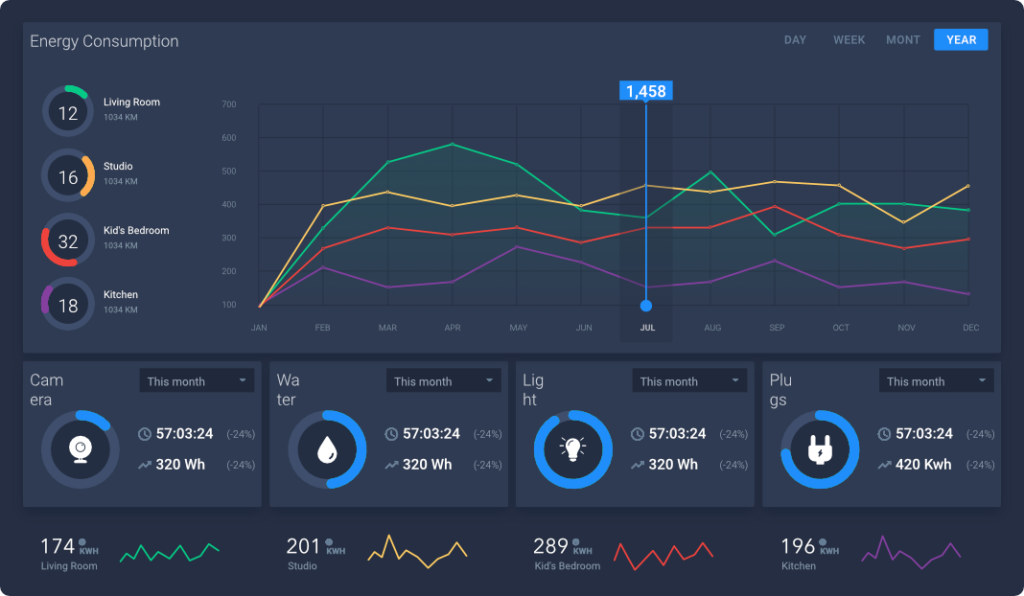
Governance Tokens Explained
What are Governance Tokens
Governance tokens are a form of cryptocurrency that gives the power to token holders to vote on which direction a blockchain project should move. Governance tokens’ primary purpose is to decentralize decision-making and give holders a say in how the project is run.
Governance tokenholders are typically more invested in the project’s success because they stand to gain or lose more depending on the outcome. Community members can directly use tokens to influence a blockchain protocol’s direction and features. As a result, it is possible to make changes to the user interface, vote on fees and reward distribution, and even modify a project’s underlying code.
Although most DeFi tokens are governance tokens, voting is one of many distinguishing features.
People who own these governance tokens can use them to borrow money, stake them, and earn money from yield farming. Despite this, the primary purpose of the tokens remains to distribute power.
Governance tokens are a relatively recent invention, and their effectiveness is still debated. Some backers believe they are crucial for true decentralization. At the same time, those who criticize it fear that the tokens will result in the concentration of power in the hands of a small number of tokenholders.
Functioning of governance tokens
Governance tokens are the building blocks for decentralized governance in decentralized autonomous organizations (DAOs), DeFi projects, and decentralized applications (DApps).
Governance tokens are often awarded to users who have provided substantial contributions to the community or those that have illustrated loyalty. To ensure that the projects move forward successfully, token holders vote on significant issues. Holders vote using smart contracts, which automatically tabulate and implement the results.
Each project’s governance token rules are unique. Various calculation methods are used to distribute them to stakeholders such as the founding team, investors, and users.
Some governance tokens can only vote on a subset of governance issues, whereas others can vote on anything from development updates to smart contract revisions.
Similarly, some governance tokens can generate financial returns while others cannot.
MakerDAO, an Ethereum-based DAO, was among the first to issue governance tokens. Dai (DAI tickers down $1.00) is MakerDAO’s stablecoin, and Maker (MKR tickers down $936) token holders govern the protocol. One token equals one vote, and the decisions with the most votes are implemented.
Maker Governance Voting Portal
Fees, rules, and team member appointments are among the issues that MKR tokenholders vote on. The ultimate goal is to keep DAI stable, transparent, and efficient.
Compound, a DeFi protocol that allows users to borrow or lend cryptocurrencies, is another example of a protocol with a governance token. Compound (COMP tickers down $50.74) is the protocol’s governance token, which tokenholders can use to vote on critical protocol-related issues.
Also Read,
Web3 Will Inject $1.1 Trillion Into India’s GDP By 2032, Following A 37x Increase Since 2020
Compound protocols governance portal
Users’ number of COMP tokens is determined by their activity level on the Compound network. On the other hand, users who lend and borrow more frequently will be compensated with more COMP tokens. The COMP token represents one vote on the Compound. Tokens can also be assigned to others so they can vote on your behalf.
Compound relinquished control of the network’s admin key in 2020, and the project is now entirely controlled by its tokenholders, with no other governance methods.
Difference between governance and utility tokens
Utility tokens are digital assets that can be utilized as payments for a fee or to gain access to a product or service. On the other hand, governance tokens give the holder a say in how the project is run.
The purpose of a utility token is typically encompassed within the native blockchain network or crypto platform where it was purchased. An excellent example of a utility token is BNB (BNB tickers down $274). On Binance, it is used to pay fees, vote on new token listings, and purchase tickets or “entry fees” for features such as the Binance Launchpad.
The primary difference is that utility tokens have no governance power. Utility tokens are an excellent choice for many applications, but governance tokens could be a better option in certain instances. As previously stated, governance tokens may also be employed for staking and loaning. As a result, they are more flexible than utility tokens, which are mainly used for transactions.
Benefits and Pitfalls of governance tokens
Governance tokens are an excellent way to decentralize a project and give users a reason to participate, but they can be complicated and easily abused. Decentralization is one of the primary benefits of governance tokens. They are, in fact, the only way for developers to implement decentralization in the DeFi ecosystem. Without them, there would be no way for users to have a say in how the project is run.
Another benefit of governance tokens is encouraging users to remain involved with the project. If a user has COMP tokens, they will want to continue using the Compound platform to earn more COMP tokens. This creates a virtuous circle in which users are incentivized to use the platform, thereby increasing its value.
Governance models also allow for more efficient development because developers can focus on features requested by the community. Traditional development models require developers to spend significant time and resources on features that may or may not be used.
There are also some risks and drawbacks to using governance tokens. One disadvantage is that they can be complex, making it difficult for users to understand how they work. Some protocols, for example, have multiple token types with different functions. Because users may only want to bother voting or participating in governance if they understand how it works, this complexity can lead to user apathy.
Another drawback is that some individuals may misuse their position of authority. A user with many COMP tokens can easily sway the vote in their favor. This may result in decisions that are outside the best interests of the platform as a whole. There may also be a lack of accountability because no one can be held accountable if a wrong decision is made.
What is the value of governance tokens?
Governance tokens are valuable because they allow holders to influence how the project evolves. Governance tokens can also improve organizational efficiency. As a result, the organization may become more efficient and successful.
Furthermore, governance tokens have monetary value and can be traded, swapped, exchanged, staked, etc. They are also an excellent way to generate passive income. Stake governance tokens may also provide users additional benefits such as increased service access or a share of the protocol’s profits. In this case, owning a governance token is analogous to owning a piece of a revenue stream.
So, how are governance tokens valued? There are several options. One is that the tokens will become more valuable as the project grows in popularity. For example, new blockchain games typically allow early adopters to stake their governance tokens in exchange for game revenue. While a governance token may appear to have little value initially, it may be worth much more.
By buying back tokens, a decentralized protocol can increase the value of its governance tokens. This reduces the number of tokens in circulation, increasing each value.
Also Read,







